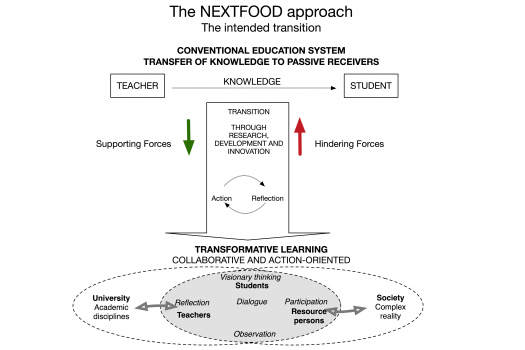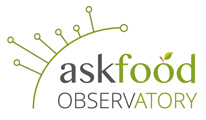The ‘NEXTFOOD approach’ is a transformative and participatory learning model based on collaborative transdisciplinary and action-oriented learning.
It is characterized by
- a shift from theory to phenomenon as the starting point for the learning process (experiential learning) and
- a shift in focus from knowledge to competences needed to take informed and responsible action as the ultimate goal of learning
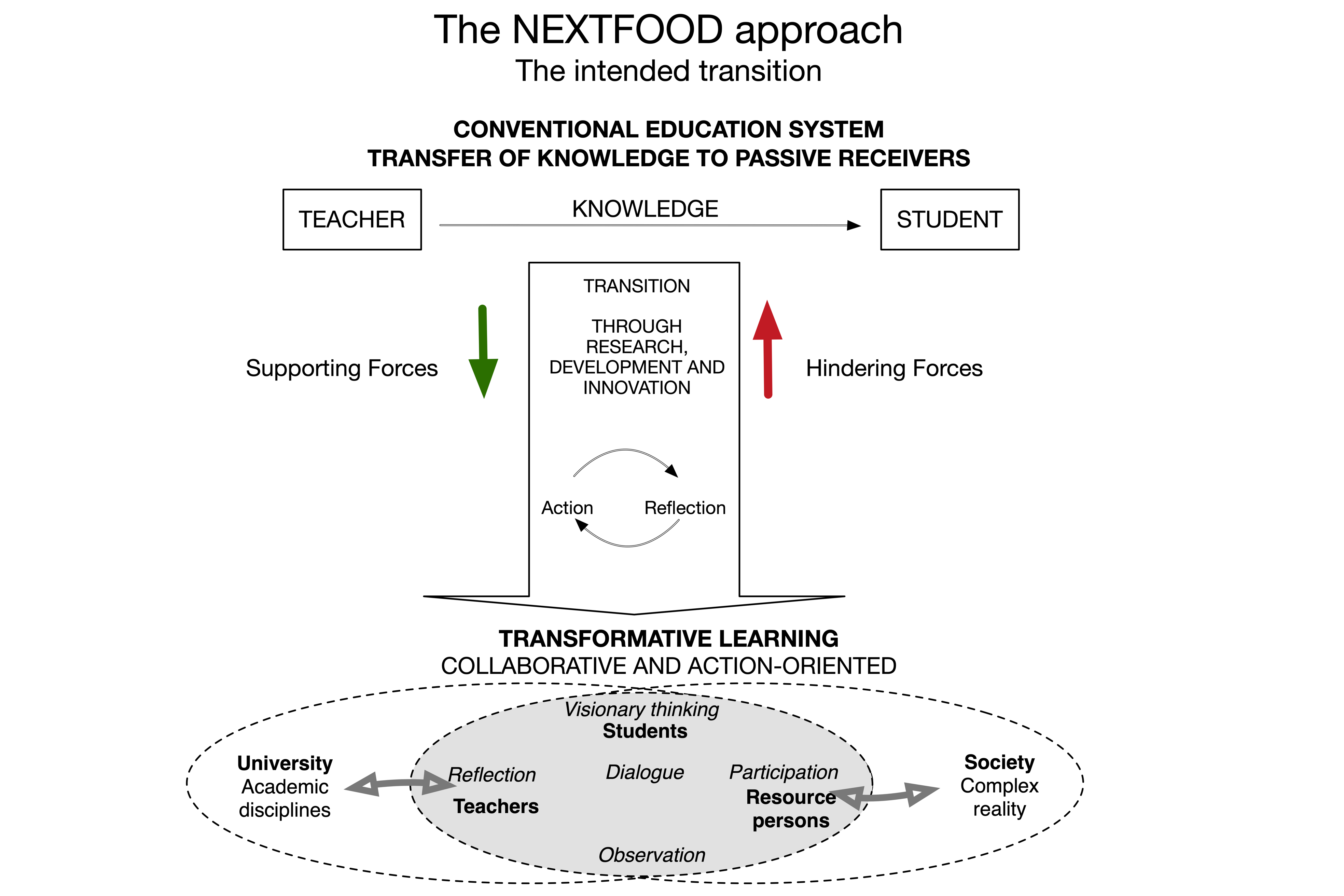
This method puts teachers, advisors, students and stakeholders into a real environment to solve a specific problem together. The learning happens by facilitated observation, participation, dialogue, visionary thinking and reflection
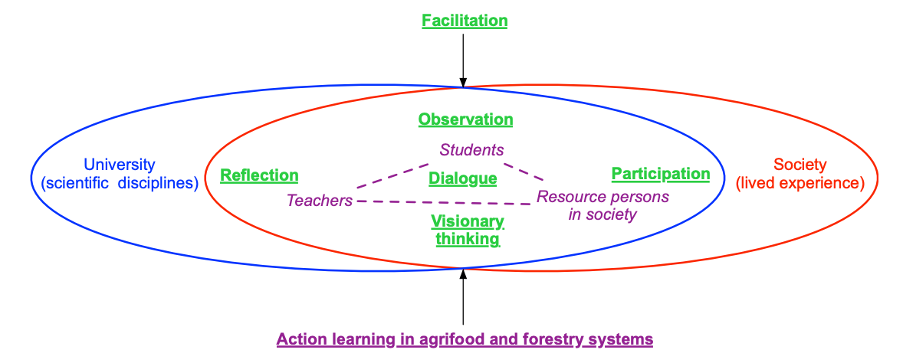
The transition to a radically different approach in education implies a paradigm shift that is likely to pose new challenges to all actors involved (students, teachers and institutions). These may pertain to the mindset, habits and competences of both teachers and students, which are often rooted in specific disciplines and a tradition of theory as starting point for learning. Institutions with education usually organised according to disciplines sub-divided into topics and with a dominance of assessment methods that reward only theoretical knowledge, may be reluctant to support new education that needs to be transdisciplinary, involve various extra-university stakeholders, and include other assessment methods than written exams. Within this context, there is a need for more knowledge about how to effectively plan, implement and further improve the new approach.
In the NEXTFOOD project, the strategy for generating such knowledge is action research (Levin and Ravn, 2007) in 12 selected educational activities. During the project, each of these will go through several action research cycles.
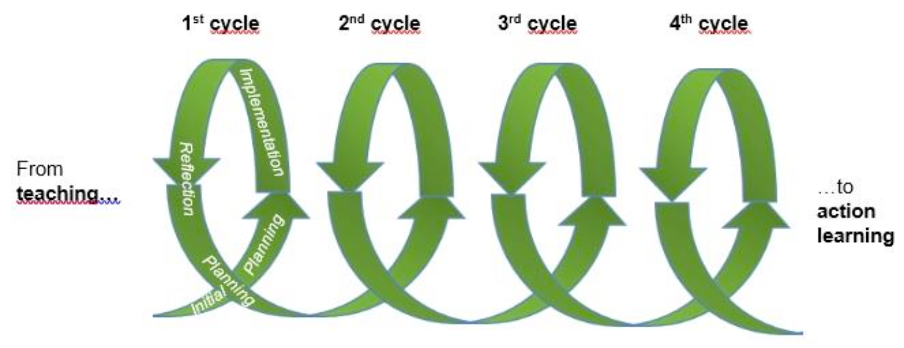
Each cycle contains 3 major phases: planning – implemention – reflection. The research questions overarching the Nextfood case studies are:
- What does it take from students (learners), teachers (facilitators), external stakeholders and institutions to successfully develop an education based on the Nextfood approach?
- What are the supporting and hindering forces for making the transition to the Nextfood approach?
- What strategies should be used to benefit from the supporting forces and reduce impacts of the hindering ones?
Read more at:
D2-1 research protocol.pdf
D3-1 educational approaches.pdf
